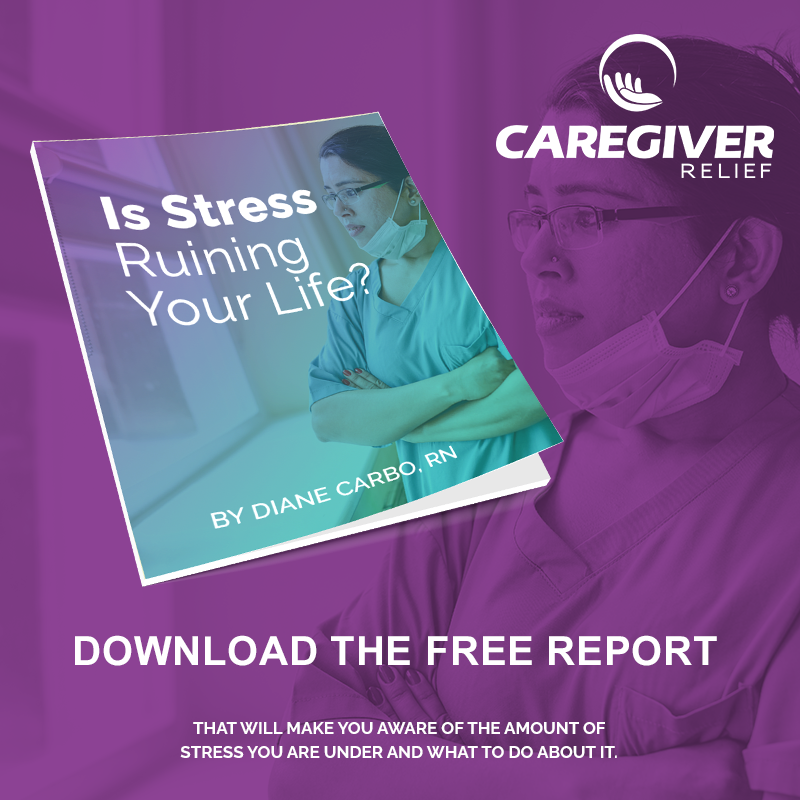What Does Burnout Feel Like?

Burnout is a feeling of physical, emotional and mental exhaustion resulting from prolonged stress. Burnout symptoms can cause the person to feel overwhelmed and unable to cope with their own life and obligations. People who experience burnout often become cynical, unmotivated, and emotionally drained.
This post will explore what burnout feels like, both physically and emotionally, as well as look at the factors that contribute to it. You’ll also find out about warning signs you should watch out for, and how to manage and address burnout.
If you think you’re struggling with burnout, know that you are not alone and there are resources available to help you cope. Read on to better understand burnout and to learn some strategies for tackling it.
Psychology of Burnout
Burnout is a state of mental, emotional and physical exhaustion that comes from prolonged stress at work. Chronic stress is a significant factor that can lead to burnout, manifesting physically and emotionally over time. Despite the name, burnout doesn’t necessarily have to be caused by work-related stress. It can be caused by any number of factors, such as long-term caregiving duties or chronic health problems.
When dealing with burnout, you may feel overwhelmed, exhausted and unmotivated. A sense of hopelessness is common, as well as irritability, difficulty sleeping and a lack of energy. Burnout also affects your ability to think clearly and concentrate. You may experience a feeling of being emotionally drained and may find it difficult to get excited or motivated about anything.
You may become more sensitive, easily annoyed or frustrated. You may also find yourself more apathetic, withdrawn, and disconnected from those around you. You may even find yourself expecting the worst in any situation. You may start to lack confidence in your abilities, or be overly critical of yourself and others.
These feelings are tricky to manage on their own, but when added to a pile of external commitments, they can quickly become overwhelming. Knowing the psychological symptoms of burnout can help you better identify it in yourself and in those around you, and seek support and solutions to address it.

What Does Burnout Feel Like?
Burnout can manifest itself in both physical burnout symptoms and emotional symptoms. People often feel exhausted and drained, both physically and emotionally due to the extreme levels of stress they are under. Burnout can also have serious physical symptoms, including headaches, chest pain, digestive dysfunction, insomnia, and feelings of numbness or indifference.
Burnout often creates a sense of hopelessness in a person, as well as a feeling of being overwhelmed and unable to cope with their daily tasks. It can lower energy levels, cause a lack of concentration, create feelings of apathy, and disrupt relationships with others. It is important to recognize the signs of burnout in order to take care of yourself and address the situation.
Common physical reactions associated with burnout include:
- Fatigue
- Headaches
- Stomach aches
- Muscle tension
- Insomnia
- Loss of appetite
- Digestive problems
- Heart palpitations
- Chest pain
It is important to listen to your body when it comes to recognizing burnout and taking measures to manage it. If you feel any of the above physical symptoms, don’t ignore them – get help!
The Difference Between Stress and Burnout
While stress and burnout are related, they are not the same thing. Stress is a normal response to specific situations or events, and it can often be managed with coping mechanisms and self-care. Think of stress as your body’s alarm system, alerting you to immediate challenges that need attention. On the other hand, burnout is a chronic state of emotional, mental, and physical exhaustion that results from prolonged stress, lack of control, and poor work-life balance. Unlike stress, which can sometimes be motivating, burnout leaves you feeling depleted and disengaged. Burnout can lead to physical symptoms such as headaches, stomach problems, and sleep disturbances, as well as mental health issues like depression and anxiety. Understanding this distinction is crucial for effectively managing your mental health and preventing burnout.
Understanding Burnout
Burnout is a state of emotional, mental, and physical exhaustion caused by prolonged stress, overwork, and lack of balance in life. It can result in feelings of hopelessness, detachment, and cynicism towards work, life, and others. Unlike temporary stress, burnout is a chronic condition that can significantly impact your overall well-being. It doesn’t discriminate; anyone can experience burnout, whether you’re a high-powered executive, a stay-at-home parent, or a student. The key is to recognize the signs early and take steps to address them before they escalate. Ignoring burnout can lead to severe consequences for your mental and physical health, affecting both your professional and personal life.
What Causes Burnout? Chronic Stress
Burnout has many different causes, and it’s important to understand what these causes are in order to effectively manage it. Job burnout is a common result of prolonged stress at work, leading to physical and emotional exhaustion.
There are three key contributing factors: individual, environmental, and occupational.
Individual Causes of Burnout
The individual causes of burnout refer to the unique pressures and expectations one places on oneself. Too much stress from personal expectations can lead to feelings of anxiety and frustration. It could be an expectation to constantly be productive or to achieve perfection in all areas of life. This can lead to feelings of anxiety, fatigue, and frustration. Other individual causes of burnout include stress, lack of motivation, unhealthy thoughts, or a lack of balance between work and life.
Environmental Causes of Burnout
The environmental causes of burnout refer to the external pressures and demands one faces. Chronic stress from a demanding environment can lead to health issues such as high blood pressure. This could include a demanding work environment, a negative home life, or a lack of support from those around you. These external factors can contribute to difficulty managing stress, which then leads to burnout.
Occupational Causes of Burnout
Lastly, the occupational causes of burnout refer to what is happening in the workspace. Individuals experiencing burnout often feel overwhelmed by their workload and lack of resources. This could be a heavy workload or an overly competitive work environment. It could also include long hours, inadequate resources, or a lack of flexibility. These workplace factors can cause an individual to feel overwhelmed, which can lead to burnout.
It is important to recognize the variety of factors that can contribute to burnout in order to effectively identify and manage the condition. Understanding the causes of burnout can help people take the necessary steps to prevent it.
Warning Signs and Symptoms of Burnout
Burnout can manifest in different ways, but common warning signs and symptoms include:
- Emotional exhaustion: Feeling drained, depleted, and exhausted, even after a full night’s sleep.
- Cynicism and detachment: Developing a jaded attitude towards work, life, and others, and feeling disconnected from your surroundings.
- Reduced performance: Struggling with productivity, feeling ineffective, and lacking motivation to complete tasks.
- Physical symptoms: Experiencing headaches, stomach problems, sleep disturbances, and other physical complaints that seem to have no clear cause.
- Loss of interest: Feeling disconnected from activities, hobbies, and relationships that once brought joy and fulfillment.
Recognizing these symptoms early can help you take the necessary steps to address burnout before it severely impacts your life.

Warning Signs Of Burnout Symptoms
Burnout can creep up on you without any signs or warning. Depression burnout shares overlapping symptoms with burnout, such as exhaustion and difficulty concentrating. However, there are some tell-tale signs to watch out for that might indicate that you’re heading down the road of burnout. Here are a few:
- Lack of motivation and enthusiasm
- Increasingly negative attitude towards tasks that used to be enjoyable
- Feeling like you have no control over your life
- Constant fatigue and sluggishness
- Loss of focus and difficulty concentrating
- Sleeping too much or too little
- Lack of satisfaction from accomplishments
- Isolation from loved ones and activities you typically enjoy
- Using drugs or alcohol to cope
- Unexplained pains or bodily aches
If you find yourself experiencing several of these symptoms on a regular or semi-regular basis, it may be time to take a serious look at how you’re managing your stress levels. Try to make a conscious effort to recognize, understand, and manage the warning signs before burnout can take a stronghold.
Coping Strategies for Burnout: Emotional Exhaustion
Burnout is a real and often overwhelming issue for many people. Maintaining physical and emotional health is crucial in managing and overcoming burnout. It can be difficult to identify the cause of burnout and to know how to manage its effects. Thankfully, there are several strategies that can help you address and manage burnout.
One key strategy is to recognize the warning signs of burnout, so you can begin to take action before it becomes too overwhelming. Once you’ve identified your own warning signs, it’s important to pay attention to them and take breaks when needed. Taking time off to relax and recharge may help alleviate some of the symptoms associated with burnout.
It’s also important to practice self-care. Even small activities like taking short walks, reading, or listening to music can help manage burnout. Make sure to get outside in the fresh air for some vitamin D, as sunlight can help improve mood and energy levels. Exercise and healthy eating can also boost physical and mental wellbeing, so make time for regular physical activity.
In addition to physical self-care, it’s important to take care of yourself emotionally and mentally. Talk to friends and family, spend time in nature, allow yourself to cry when needed or take a mental health day. If necessary, seek out professional help from a counsellor or therapist for additional support.
It can also help to prioritize tasks and find ways to reduce stress. Make lists to help manage workloads, delegate tasks when possible, break down larger tasks into smaller, more manageable ones, and set boundaries around available time for work. Finally, take time to rest and reset with engaging activities such as yoga, meditation, and mindfulness.
Burnout is a very real and very serious problem that can have severe consequences. It can cause physical, mental, and emotional distress, as well as significantly disrupt your life. Despite the seriousness of burnout, it is very manageable and it is important to take action to protect yourself.
It is essential to recognize the warning signs of burnout and take the necessary steps to address them. Keeping track of your physical and emotional reactions, such as feeling overwhelmed, having difficulty concentrating and sleeping, or developing physical ailments due to stress, can help you identify when it’s time to take a break. Additionally, understanding the individual, environmental, and occupational factors that may be contributing to your burnout can help you create a plan of action.
Finally, there are a variety of coping strategies, such as practicing mindfulness, self-care, and actively engaging in hobbies that you enjoy, to help manage and prevent burnout. Taking the time to prioritize these steps can make a tremendous difference in reducing the impacts of burnout and restoring balance in your life. Do not hesitate to reach out for help if you need it—there are plenty of online resources available to support those struggling with burnout. If you take the time to understand what burnout feels like, recognize the warning signs, and develop strategies to cope, you can take back control of your life and thrive!

Preventing Burnout
Preventing burnout requires a proactive approach to managing stress, maintaining a healthy work-life balance, and prioritizing self-care. Here are some strategies to help prevent burnout:
- Set boundaries: Establish clear limits on work hours, tasks, and responsibilities to ensure you have time for rest and personal activities.
- Prioritize self-care: Engage in activities that nourish your mind, body, and spirit, such as exercise, meditation, and spending time with loved ones. A healthy diet and regular physical activity can significantly improve your mood and energy levels.
- Seek support: Build a support network of colleagues, friends, and family members who can offer encouragement and assistance when needed.
- Take breaks: Incorporate regular breaks throughout your day to rest and recharge. Even short breaks can make a big difference in reducing stress.
- Practice mindfulness: Cultivate mindfulness and presence through practices like yoga, meditation, and deep breathing exercises. These can help reduce stress and increase productivity.
By implementing these strategies, you can create a more balanced and fulfilling life, reducing the risk of burnout.
Resources For Those Living With Burnout: Mental Health Professional
Burnout can be a difficult, emotionally challenging experience to go through. These resources offer support for both physical and mental health, helping individuals cope with burnout. That’s why it is important to seek out helpful resources to make the process of recovery easier. There are a wide range of online resources that provide support and guidance to people living with burnout. Here are some great places to start:
- Burnout Support – An online platform offering support and advice for burnout sufferers.
- The American Institute of Stress – An organization dedicated to helping individuals and organizations combat stress.
- The Anxiety and Depression Association of America – A non-profit organization that provides information, resources, and treatment referrals for those living with anxiety and depression.
These sites provide a wealth of information about burnout, its causes, effects and possible treatments. They also have active online communities where you can connect with fellow burnout sufferers and get support from other people in similar situations.
Conclusion
Burnout is a serious issue that can have severe consequences on mental and physical health. By understanding the warning signs and symptoms of burnout, and taking proactive steps to prevent it, individuals can maintain their well-being and achieve a healthy work-life balance. Remember, burnout is not a sign of weakness, but rather a sign that it’s time to make changes and prioritize self-care. By taking care of yourself, you can overcome burnout and achieve a more fulfilling and meaningful life. If you find yourself struggling, don’t hesitate to reach out to a mental health professional for support. Taking these steps can help you regain control and thrive in both your personal and professional life.
You might also like this article:










